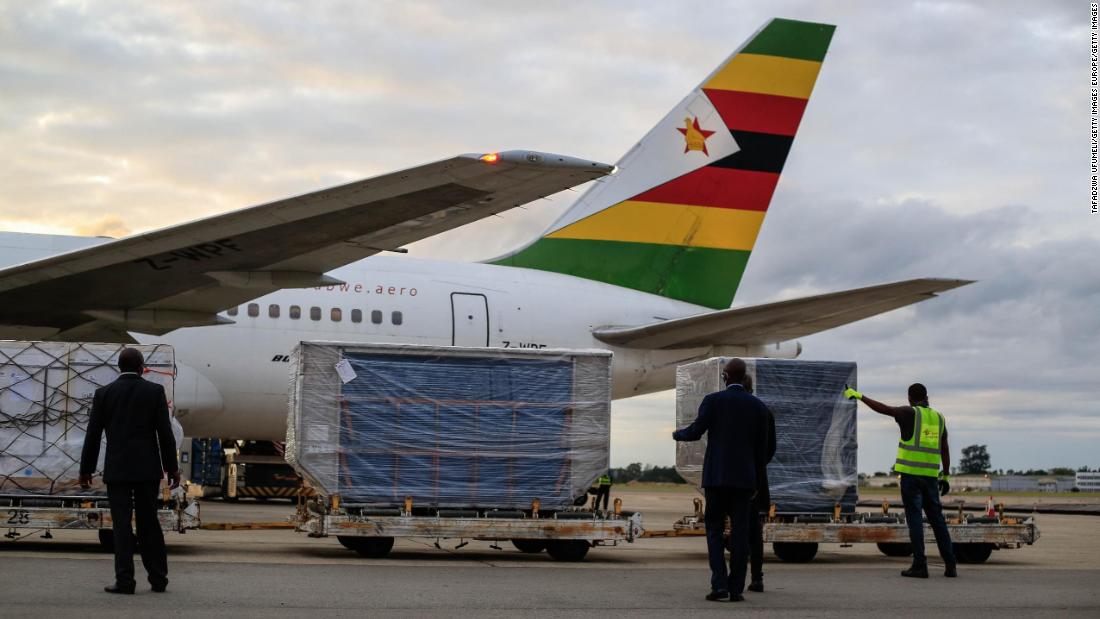The country will begin administering the doses this week, President Emmerson Dambudzo Mnangagwa said on his official Twitter profile.
“The first batch of vaccines for Zimbabwe has been successfully delivered. We are starting the vaccination of Zimbabweans this week! The sooner our country is protected against this virus, the faster the economy of Zimbabwe can flourish,” he said.
The country’s health ministry tweeted on Sunday that the 200,000 doses had been donated by China.
A further 600,000 doses from China will arrive in early March, Information Minister Monica Mutsvangwa said last week. It is unclear how much the cash-strapped Southern African nation will pay for the second group of vaccines from China National Pharmaceutical Group (Sinopharm).
Zimbabwe’s deputy president Constantino Chiwenga, head of the delegation receiving the vaccines included by the finance minister, said health workers would be vaccinated in the first place.
“This is a timely donation … our people have suffered under this pandemic. The vaccine offers the possibility that our people who suffered under the economic devastation of the pandemic may finally turn a new page,” Chiwenga said. said.
Zimbabwe has set aside $ 100 million for vaccines and wants to buy 20 million doses to immunize about 60% of the population and gain herd immunity.
Finance Minister Mthuli Ncube said about 1.8 million vaccine doses would be obtained from China. He did not give further details.
Last week, the West African country of Senegal paid $ 3.7 million for 200,000 doses of the Sinopharm COVID-19 vaccine – almost $ 19 per shot.
Only a handful of African countries have started doing vaccinations while the continent is scrambling to get supplies for its 1.3 billion people, even though many richer countries are rushing ahead with massive vaccination programs.
The African Union says it has secured about 670 million doses for the African continent.
Zimbabwe is also negotiating with Russia over the acquisition of its Sputnik vaccines and expects more doses from India and COVAX.
The country has so far reported nearly 35,000 confirmed cases of the virus and nearly 1,400 deaths.
